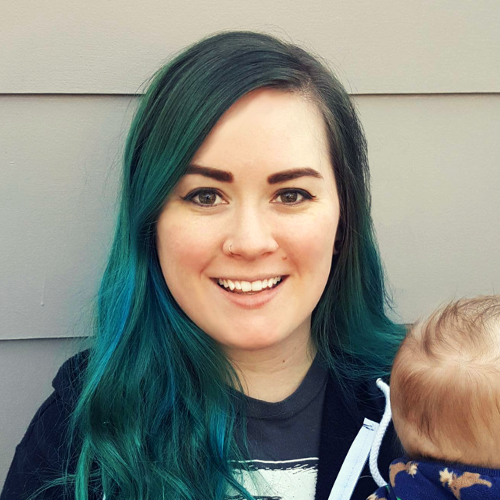Given that it is relatively easy to start a podcast and podcasting has become more popular over the past few years, there are a lot of podcasts out there already. This can make it difficult to start a profitable podcast. Gaining and retaining an audience takes some careful dedication and creativity. So, we've gathered all of our best advice for starting a profitable podcast to help you get started!
Establish a High Quality Podcast Set Up
Firstly, to start a profitable podcast, you need to have a podcast set up that allows for high quality audio. Take a look at our Podcast Equipment Guide for Beginners here.
Find Your Niche
Now, having the right equipment is a key element, but, ensuring that your podcast has a specific topic is the most important aspect. Find your niche and make sure that the topic is something that you love, are knowledgeable about, and want to learn more about. Your passion for your topic translates into engaging content for listeners. You don't want to begin your podcast too generally because it will be much more difficult to find your target audience that will be consistently loyal to your podcast. Once you build an audience, you can potentially begin to broaden your podcast into other topics you may be interested in.
Select Your Goal or Purpose
You need to have a specific goal or purpose for your podcast. Do you want to entertain? Teach? Inspire? Motivate? Captivate? All of the above? Having a purpose for your podcast helps give you direction when making decisions so that your podcast brand remains consistent.
Devote Yourself to Your Podcast
This may go without saying, but also, make sure you devote yourself to making the best podcast possible. It will be much more difficult to attract and retain listeners if you aren't putting out the best content possible.
Find Your Target Audience
Once you have a topic, this will likely lead you to your target audience. Figure out what kind of people are generally interested in the topic of your podcast. Write out a description of the person that you imagine would listen. List their age, gender, race, ethnicity, geographical location, interests, websites that they might regularly visit, and any other characteristics you can think of. Be as descriptive as possible. Creating this image of your target audience can help you to direct your efforts when trying to gain listeners. You want to have a good understanding of them so that you can promote your podcast in the right places online. The last thing that you want is to be wasting time and possibly even money on people who are completely uninterested in your podcast topic.
Decide on a Title, Format, Length, & Frequency
Picking the right title is important because it needs to convey what your podcast is about while remaining memorable and interesting as well. Just as podcast covers are part of first impressions, titles are as well. Format, length, and frequency are factors of your podcast that need to be established from the beginning. As you move forward, you can alter them to your changing needs, but posting consistent episodes regularly should be a priority. Your format should be based on the segments that you want to include. You may just want to talk on your podcast, or you can incorporate interviews/co-hosts, games, Q&A's, etc. Generally, podcasts are around 45 minutes long, but length is up to your discretion. Just keep in mind, if a podcast becomes too long, it may be much less engaging. Similarly, many podcasts upload 1 new episode weekly, but that is also up to your discretion. Just be sure that you post enough for listeners to stay interested, but not so much that listeners are overwhelmed by the amount of episodes or that you are worn out and lacking in information, motivation, and ideas.
Create the Ideal Podcast Cover
Having a great podcast cover is vital to creating a profitable podcast because first impressions are everything. For some more detail on creating the ideal podcast cover, check out our article here.
Find Your Voice
Since your podcast is based on you talking, you've got to find your voice for your podcast. Be personable, genuine, and polite. Your audience wants to listen to someone real and honest, not someone who is putting up a front. And, they want to listen to someone who is conversational. Talk to your audience like you are talking to a friend instead of an overall audience. However, be sure to also avoid rambling. Ensuring that you aren't being rude, bigoted, or discriminating against anyone in your podcast is of the utmost importance as well. The last thing that you want is for your audience to feel unwelcome when listening to your podcast.
Sharing aspects of your life and telling powerful stories are great ways to develop an engaging voice. Ultimately, your listeners are investing their time into you when they listen to your podcast. Make sure that you reveal aspects about yourself and that you tell some of your own personal stories. This will make for some interesting content and your listeners will get to know you better. If you are personally invested in the things you say in your podcast, then it is much more likely that your audience will be invested as well. As for powerful storytelling, given that you are lacking the visual element, you've got to be able to tell your stories with excitement, cohesion, and detail that will allow your listeners to picture the stories in their own heads.
Lastly, don't take yourself too seriously. While you want to be prepared for your podcast, remember to still be relaxed and if you make a mistake, laugh about it and keep on moving! Audiences appreciate a good sense of humor and the authenticity that laughing at your own mistakes can bring.
Publish to a Variety of Sources
Publishing your podcast to a variety of sources is important in order to reach as many people as possible. Publish to iTunes/Apple Podcasts, Spotify, Google Podcasts/Google Play Music, TuneIn, and any other directory you can find. There are tons of directories, so a simple Google search will provide you with many options for places to publish. People have different preferences for what platform they use to listen to podcasts and it may even be easier to discover your podcast on a certain platform compared to the others. So, ensuring that you add your podcast to many different directories not only helps your podcast's visibility, but also gives you options for learning more about your audience's preferences.
Create a Website
Having a website is an essential part of creating a profitable podcast because you need a place that is a central hub for everything that you have going on. You can direct listeners to your website for announcements, extra content, other business ventures and information, and so on. Directing listeners to your website can also be helpful in getting information about your listeners, such as their demographics using Google Analytics. This information that you gather from your website can then help you improve your podcast and hone in on your target audience even further.
Utilize Social Media
Your social media accounts can provide a space for you to engage with listeners, reach new listeners, and they serve as a place for you to make announcements and update your audience. Interacting with listeners via social media is a great way for people to get to know you while you have the opportunity to better understand your audience. Utilizing your social media accounts can also help foster a community of listeners who then may interact with each other based on their shared interest in your podcast.
Add Variety to Your Podcast
Consistency is obviously important when creating a profitable podcast, however, adding some variety, such as podcast interviews, games, Q&A's, or other segments, can be a great way to draw in new listeners and engage current listeners. Too much of the same may become boring for your listeners, so keep it interesting with some different segments. We covered how to record podcast interviews in our article here.
Produce Your Podcast
Producing your podcast can involve planning, research, writing scripts or outlines for your episodes, rehearsing, editing, adding music, creating intros and outros, posting podcast content in video form, and so on. Doing some of these things can help elevate your podcast. Preparing for your podcast with some research and an outline or talking points is a great way to keep your podcast focused. Also, adding in some music, an intro, outro, and other small editing can really give your podcast that professional touch. However, be sure to strike a balance between production and authenticity. Too much production can seem inauthentic and not enough production can seem lazy.
Connecting all of the pieces to make your podcast profitable can be difficult and time-consuming. It might take some hard work to get there. However, your passion for your topic and your podcast is the foundation of a profitable podcast. Passion translates to listeners. All of the factors for a profitable podcast may seem overwhelming, but breaking down each factor one by one is a great way to start. Let your passion fuel each step of the process for making a profitable podcast and soon the pieces should begin to fall in place. Happy podcasting!
We also covered some of the ways that you can make money podcasting in our Best Ways to Make Money Podcasting article.
Interested in podcasting with Live365? Join our waitlist to be the first to be notified when podcasting is available on the Live365 platform.
Discover thousands of free stations from every genre of music and talk at Live365.com. Keep up with the latest news by following us on Facebook (Live365 (Official) and Live365 Broadcasting) and Twitter (@Live365 and @Broadcast365)!
Article Image: NeONBRAND via Unsplash.


